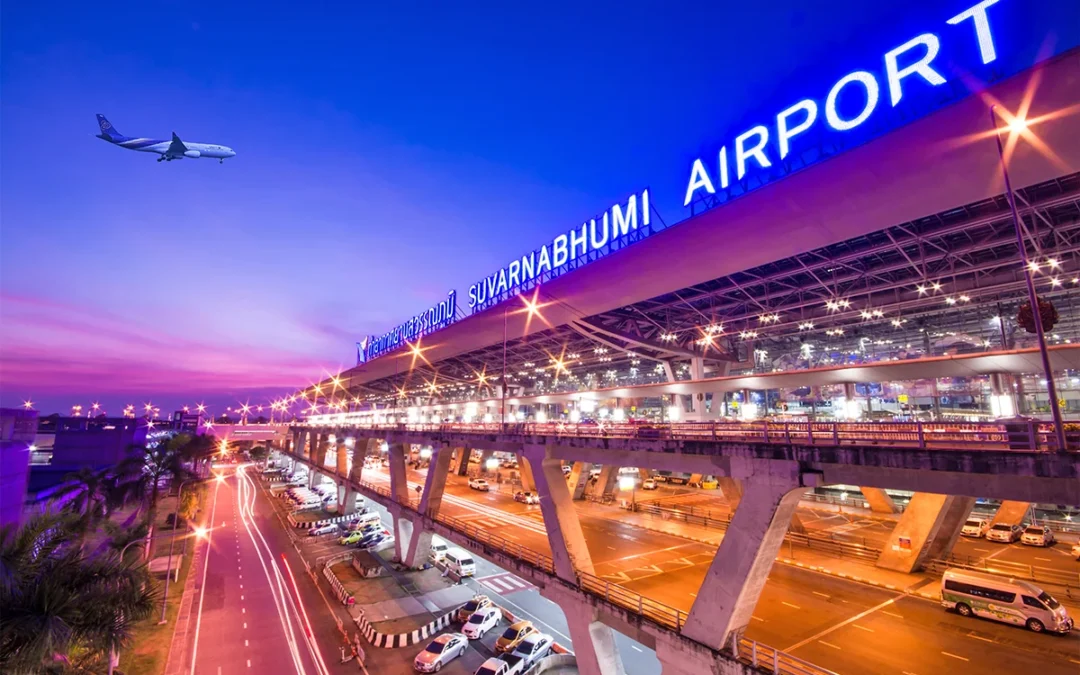so you had a little holiday, you were blown away by kind faces and smiles from pretty young ladies and how much that delicious dish of food was and how little it cost to live in Thailand in an amazing home. Then you can’t help compare to your home country and you start to really battle with yourself about selling up your home and moving to the sunshine.
For decades, the dream of the “tax-free expat package” in Thailand was a powerful lure. The fantasy was simple: a multinational company plucks you from your home country, offers a salary that dwarfs local rates, covers your children’s international school fees, and provides a luxurious housing allowance—all while your income remains untouched by the Thai taxman. You’d land in Bangkok, a modern-day pioneer with a golden ticket to paradise.

It’s time to wake up. That dream, for the vast majority, is over.
The landscape for expat jobs in Thailand has undergone a seismic shift. The real, plum assignments—the ones negotiated from London, New York, or Sydney—have decreased significantly. If you’ve been tirelessly refreshing job boards from within Thailand, hoping for that elusive opportunity, you’ve likely felt the crushing reality. The “expat life” as we knew it is being reshaped by powerful economic forces, and understanding this new reality is the first step to carving out a sustainable future here.
Why the Golden Age of Expat Jobs Has Faded
The decline of the traditional expat package isn’t an accident; it’s a calculated evolution. Several key factors have converged to create this new, more competitive environment.
- The Rise of Local Talent: This is the single biggest factor. Thailand, particularly Bangkok, has invested heavily in education and professional development for decades. The result is a generation of highly skilled, bilingual (often trilingual), and deeply connected local professionals. A Thai national with an MBA from a top university understands the local market nuances, speaks the language, and costs the company a fraction of a foreigner on a full expat package. For most roles, from mid-level management to specialized technical positions, hiring locally is simply smarter business.
- Global Corporate Cost-Cutting: In an era of squeezed profit margins and heightened shareholder scrutiny, the astronomical cost of a classic expat package is hard to justify. The calculus has changed. Companies now ask: “Is it absolutely essential to fly someone in, or can we develop local talent?” Unless the role requires a highly specific, globally rare skill set that cannot be found in the region, the answer increasingly favors local hiring.
- Stricter Immigration and Work Permit Enforcement: The Thai government has steadily tightened the requirements for obtaining a work permit. The infamous “Four Thais for One Foreigner” rule is just the start. Companies must now demonstrate that the role truly requires a foreigner, proving they couldn’t find a qualified Thai citizen. This creates a significant administrative and financial hurdle for employers, making them think twice before sponsoring an expat.
- Regional Hubs and the “Local Plus” Model: Many multinationals have consolidated their Southeast Asian operations into hubs like Singapore. Senior regional roles are now based there, while country-specific roles in Thailand are filled locally. When a foreigner is needed, companies often offer a “Local Plus” contract—a competitive local salary with some benefits, but a far cry from the tax-free, all-expenses-paid packages of yore.
So, How CAN You Legally Live and Work in Thailand?
If the traditional corporate path has narrowed, what are the viable routes for those determined to make Thailand their home without retiring? The pathways have evolved, requiring more entrepreneurship and flexibility.

1. The Digital Nomad & Remote Worker Path:
The Thailand Long-Term Resident (LTR) Visa is a game-changer. Aimed at “Work-from-Thailand Professionals,” it allows you to live in Thailand for 10 years while working remotely for a company based outside the country. The requirements (a minimum income of $80,000 USD per year and proof of employer status) are steep but provide a clear, legal framework. For those who don’t meet the LTR criteria, the Education Visa (ED Visa) for studying Thai or the new Destination Thailand Visa (DTV) offer alternative, though less permanent, routes to base yourself here while working online.
2. The Specialized Skill Route (The New Expat):
The door hasn’t slammed shut; it’s just become a narrower, more exclusive entryway. Thailand still needs foreign expertise in specific areas. If you are a specialist in AI, renewable energy, advanced fintech, or a senior executive with a proven track record of leading regional market entry, opportunities exist. These roles are almost exclusively filled by headhunters and are offered to candidates who are already highly successful in their home countries.
3. The Entrepreneur & Investor Path:
If you have capital, you can create your own job. The Thai Elite Visa provides long-term residency through a membership fee, sidestepping the need for a work permit (though you still cannot legally work for a Thai company). Many Elite holders then establish their own businesses—a digital marketing agency, an import/export company, or a F&B venture. Alternatively, you can invest a significant amount (typically 3-5 million THB) in a registered Thai company to secure your work permit, effectively employing yourself.
4. The In-Country Expert:
Become so invaluable that a company has no choice but to sponsor you. This often means starting on a local contract, perhaps in a teaching, hospitality, or niche marketing role, and proving your worth. Over time, a company may be willing to navigate the work permit process for a trusted, high-performing employee who is already integrated into their team.
The dream hasn’t died; it has been demystified. The era of being handed a luxurious life on a silver platter is largely gone. The new path to living and working in Thailand requires more planning, more specialized skills, more entrepreneurial spirit, and a genuine commitment to integrating into the local economy. It’s no longer about what Thailand can do for you, but what you can build for yourself within its vibrant, complex, and rewarding landscape.


